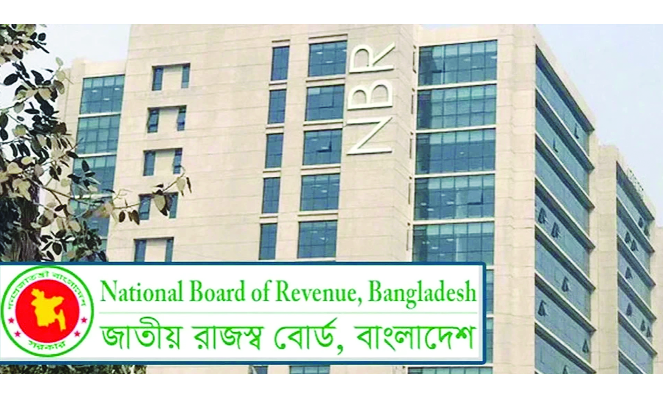

Staff Correspondent: The government on Tuesday said the dissolution of the National Board of Revenue (NBR) aims to separate tax policy-making from tax administration to improve efficiency, reduce conflicts of interest, and broaden the country's tax base.
The Chief Adviser's press wing shared a statement with the media explaining why Bangladesh is splitting the National Board of Revenue.
The statement is given below.
"Established over fifty years ago, the NBR has consistently failed to meet its revenue targets. Bangladesh's tax-to-GDP ratio is approximately 7.4%, one of the lowest in Asia. For context, the global average is 16.6%, while Malaysia's stands at 11.6%. To achieve the development aspirations of its people, Bangladesh must raise its tax-to-GDP ratio to at least 10%.
Restructuring the NBR is critical to this goal. There is growing consensus that a single institution should not be responsible for both creating tax policy and enforcing it-such an arrangement breeds conflicts of interest and promotes inefficiencies. For years, businesses in Bangladesh have complained that policies have often prioritized revenue collection over fairness, growth, and long-term planning.
Several long standing issues have plagued the NBR - Conflict of Interest: Housing both policy-making and enforcement under one roof has led to compromised tax policies and widespread irregularities. Under the current system, officials responsible for tax collection are not subject to any accountability framework and are often able to negotiate payments from tax defaulters compromising public interest. In many cases, tax collectors are reluctant to take action against tax evaders and assist them in doing so for personal interest.
There is no system and process in place for objectively measuring the performance of tax collectors and their career progression has not been linked with measurable performance indicators.
Inefficient Revenue Collection: The dual mandate diluted focus on both policy formulation and institutional capacity-building. As a result, the tax net remains narrow, and revenue collection has lagged far behind potential.
Weak Governance: The NBR has suffered from inconsistent enforcement, poor investment facilitation, and systemic governance issues, all of which have eroded investor confidence and weakened the rule of law.
Bureaucratic Overlap: The existing structure-where the head of the Internal Resources Division also leads the NBR-has created confusion and inefficiency, hampering effective tax policy design and delivery.
Demoralisation and Internal Tensions:
The reform process has triggered anxiety among seasoned tax and customs officers, some of whom feel they may be sidelined or overlooked.
How the Restructuring Will Help: The new structure is designed to address these chronic problems through a clearer, more accountable framework - Clear Division of Responsibilities: The Revenue Policy Division will be responsible for drafting tax laws, setting rates, and managing international tax treaties. The Revenue Management Division will oversee enforcement, audits, and compliance. This separation ensures that the officials setting tax obligations are not the same as those collecting them, eliminating opportunities for any sort of connivance.
Improved Efficiency and Governance:
By allowing each division to focus on its core mandate, the reform will enhance specialisation, reduce conflicts of interest, and improve institutional integrity.
Expanded Tax Base and Stronger Direct Taxation: The reform is expected to broaden the tax net, reduce dependence on indirect taxation, and strengthen direct tax collection by placing skilled professionals in appropriate roles.
Better, More Development-Oriented Policies: A dedicated policy unit can craft evidence-based, forward-looking tax strategies instead of reactive policies driven solely by short-term revenue goals.
Greater Investor Confidence:
Transparent, predictable policies and a professional tax administration are expected to attract investment and reduce complaints from the private sector. Ultimately, this restructuring is not just a bureaucratic reshuffle-it's a necessary step toward building a fairer, more capable tax system. Strengthened policy-making and cleaner tax administration will be vital for Bangladesh to meet the needs-and realize the hopes-of all its citizens."
